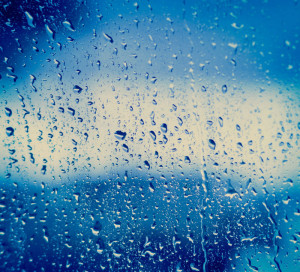 As weird as it may sound, water causes more damage to masonry chimneys than fire. Let’s think about that statement for a moment. All the brick and other materials that make up your home are protected by the roof and eave, all that is, except your chimney. The chimney bravely stands tall above your roof, constantly exposed to all the elements: rain, snow, and freeze/thaw cycles. A masonry chimney is constructed of a variety of masonry and metal materials, including brick, mortar, tile, steel and cast iron. All of these materials will suffer accelerated deterioration as a result of prolonged contact with water.
As weird as it may sound, water causes more damage to masonry chimneys than fire. Let’s think about that statement for a moment. All the brick and other materials that make up your home are protected by the roof and eave, all that is, except your chimney. The chimney bravely stands tall above your roof, constantly exposed to all the elements: rain, snow, and freeze/thaw cycles. A masonry chimney is constructed of a variety of masonry and metal materials, including brick, mortar, tile, steel and cast iron. All of these materials will suffer accelerated deterioration as a result of prolonged contact with water.
WATER: YOUR CHIMNEY’S ACHILLES HEEL
Masonry materials deteriorate quickly when exposed to the freeze/thaw cycle during which moisture that has managed to penetrate the materials periodically freezes and expands, causing undue stress. Water in your chimney can also cause rust in steel and cast iron components, which ultimately weakens or destroys them altogether. Water penetration can cause interior and exterior damage to your home and masonry chimney including: broken brickwork, deteriorated firebox assemblies, rusted damper assemblies, rotted adjacent wood and ruined wall coverings, deteriorated mortar, and cracked flue liners.
Most masonry materials are porous and will absorb large amounts of water. Common brick is like a sponge, absorbing water and wicking moisture to your chimney’s interior. Defective mortar joints or the use of improper mortar or brick can greatly increase the tendency to absorb and convey water to the interior of the masonry chimney structure. In addition, when water mixes with the creosote that is often present in a wood-burning fireplace, it will generate an extremely unpleasant odor that can fill your entire home. All of these things combined greatly compromise the overall structure of your chimney as a whole.
VAPOR PERMEABLE WATERPROOFING AGENTS
Several products have been developed specifically for use as waterproofing agents on masonry chimneys. These formulas are vapor permeable, which means that they allow the chimney to breathe out but not in. Thus water that had penetrated the chimney, or moisture that has originated from inside, is allowed to escape, while the waterproofing agent prevents water from entering from the outside. Paint, or any non-vapor permeable water sealer, should never be used as a waterproofing agent because it will trap moisture inside the chimney, which will actually accelerate its deterioration.
Water damage to masonry chimneys is usually a slow, subtle process. The problem is often not evident until it has become quite serious. Although available waterproofing measures may cost a pretty penny in up-front charges, they will save you the major expense of large masonry repairs or rebuilding of your entire chimney in the not too distant future, and, as such, represent a wise investment in your home. The last thing you want to do is hire someone that might not have the experience required for the job at hand and put your family or your home at risk. Contact us to learn why Old Smokey’s Fireplace & Chimney is your best choice.
